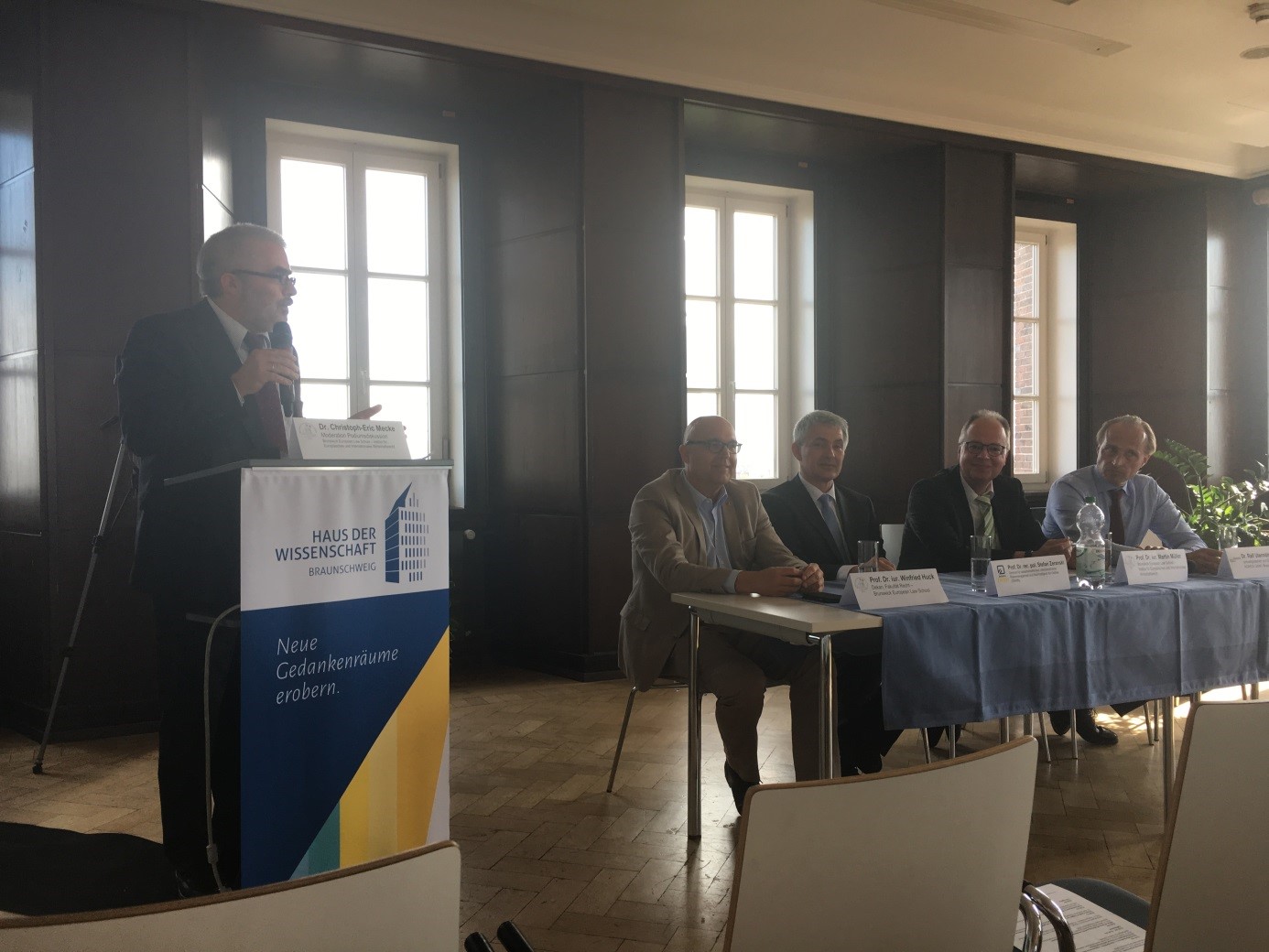At the of Prof. Dr. iur. Winfried Huck, Dean of the Brunswick European Law School (BELS) initiated a conference on "Direct Effects of UN Sustainable Development Goals (SDGs) - Implementation and Application of the SDGs in Practice - State of the Art and Perspectives" on 23 May 2018 in the House of Science more than 50 guests from science and practice as well as students of BELS. The interdisciplinary event aimed to reflect on the diversity of sustainability goals (SDGs) and to shed light on their implementation in practice. At the same time, a contribution should be made to placing more emphasis on the goals set by the United Nations (UN) in the professional community.
Following the welcome speech by Prof. Dr. Gert Bikker, Vice President of the Ostfalia University, analyzed Prof. Dr. Huck the SDGs from the perspective of transnational law and dealt with the question of their legal liability, including the international interaction between organizations such as the United Nations, the EU and the governments of the nation states. From an economic perspective, Prof. Dr. Stefan Zeranski (ZWIRN / Ostfalia) with an inventory of the sustainability aspect in the global banking system. As a result, he highlighted the deficit situation in the financial sector and emphasized a sustainable and future-oriented need for action. From a constitutional perspective, Prof. Dr. Martin Müller (BELS) the implementation of the SDGs in the federal system of the Federal Republic of Germany and emphasized the still unclarified responsibilities in the system. This is one of the main reasons that the implementation of the SDGs is not yet taking place in the required effectiveness. Dr. Ralf Utermöhlen, Managing Director of AGIMUS GmbH, highlighted the UN Global Compact from an entrepreneur's perspective using illustrative examples. Dr. Utermöhlen described transgressions emanating from international companies, highlighting weaknesses in the Global Compact, which consists of ten (non-binding) principles, and proposed solutions to make companies more socially and environmentally more efficient.
In the ensuing podium discussion, moderated by Dr. Christoph-Eric Mecke (BELS), was vividly discussed what individuals can do in the case of huge violations of large companies against environmental and social conditions concretely and it was asked if impulses for a more sustainable action of the population rather from the economy through appropriate market offers or should emanate from politics.

f.l.t.r.: Dr. Mecke, Prof. Dr. Huck, Prof. Dr. Zeranski, Prof. Dr. Müller, Dr. Utermöhlen
Photo: Anna-Theresia Krein, M.A.
In their concluding statement, the speakers largely agreed that ultimately each individual was responsible for making a contribution to sustainable development. This is a better starting point than restrictive prohibitions. The event was rounded off by a get-together that provided space for informal discussions and further exchange.
Text: Ahmed Tahar Benmaghnia / Ass. Iur. Claudia Kurkin
Press
The Braunschweiger Zeitung (Christina Lohner) also reported on the topic "Direct Effects of UN Sustainable Development Goals (SDGs) - Implementation and Application of the SDGs in Practice - State of the Art and Perspectives" on 28.5.2018. You can read this here.